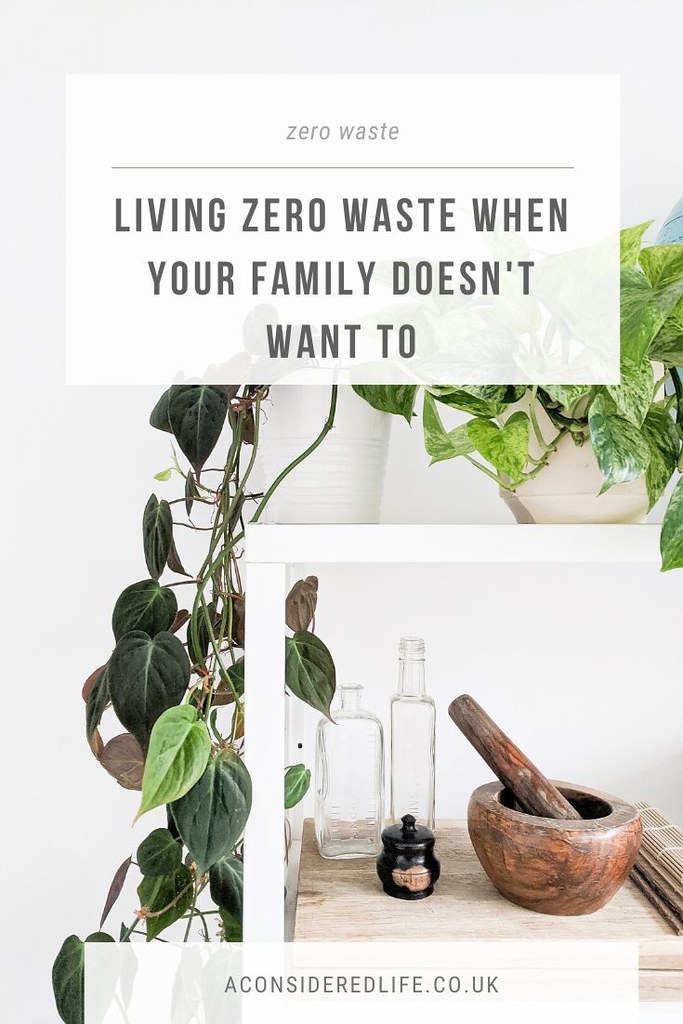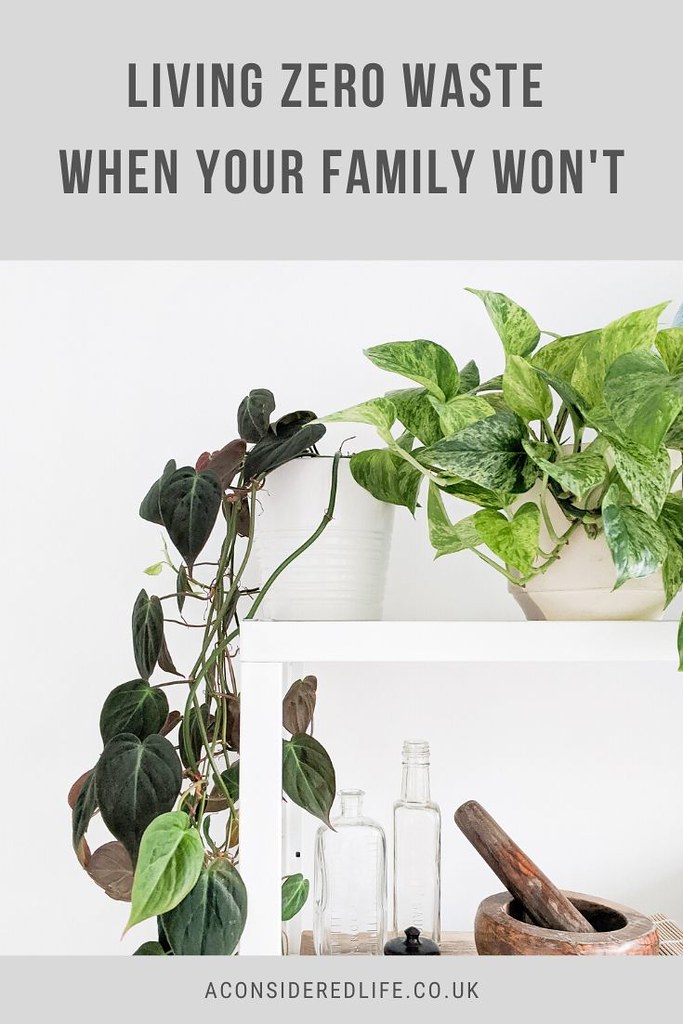
Like most people, I've always had a few low waste habits. Taking my own bags to the supermarket, using a reusable coffee cup and water bottle, and eating a plant-based diet. Pretty simple stuff. But when I really started to lean into zero waste living a few years ago, I began noticing other people's reluctance to make even the smallest of changes.
How can you make other people care about sustainability as much as you do? You can't, unless you do all the work for them, which is tiresomely impossible. If someone doesn't want to give up their plastic-wrapped convenience foods, switch to eco-friendly cleaning products, or bulk buy food to reduce packaging waste, you can't make them.
It can be incredibly difficult to live a low waste lifestyle when those around you don't care as much. Knowing you can't change someone else's habits, only your own doesn't stop it being frustrating when you notice the wasteful things they do that could easily be avoided with a slight habit shift. This is how we can learn to live with family members who don't share our passion for reducing waste.
Live By Example
Make the changes you're personally responsible for and talk openly to your family about why you're making them. When you do things a little differently to others, people start to ask questions and get interested in adopting new habits themselves especially when they learn about the benefits. Showing how you can save money, eat healthier, and reduce waste (especially when it's easy to do) are good motivations for putting the effort into embracing habit shifts. Your values may start to rub off on those around you. Only concern yourself with the things in your control; be the best you can be.
I live with my partner Jack. He's happy to make changes that reduce our waste if they save us money or make our lives easier but he isn't fully on board with every suggestion I have for living low waste. My approach is to explain why I want to make a change to the way we do things as household. When I can show that it will save us money as well as reduce our waste, he's usually on board with making the changes. It's a lot trickier to convince someone when it might inconvenience them and unfortunately quite a few zero waste habits are more inconvenient than the easier, more wasteful alternative they're use to.
Have A Positive Impact
Little nudges in the right direction can help enable bigger changes to occur. Take control of household habits by making decisions that will have a positive impact on the whole family. Reduce waste by tackling junk mail, bulk buying non-perishable essentials, and providing reusable products for your family. Encourage others to see the positive outcome of making better decisions and more sustainable habit shifts.
We split our household chores pretty equally. I make most of the decisions about the household supplies, toiletries, and other goods we use in the house so I've been able to shift habits to make our household less wasteful. I bulk buy non-perishables from sustainable brands and implement things like composting and getting rid of junk mail. I'm the one who suggests making our own food and snacks for road trips, I pack the reusables when we need them, and buy multi-purpose items instead of disposables. But there are a few habit shifts I'm willing to make that Jack doesn't want to and that's up to him.
Provide Solutions
Often people just aren't aware of the steps they can take to reduce waste and avoid plastic. If you know your partner buys coffee every morning in a disposable cup, tell them about reusable cups. Suggest your parents take a few tote bags to use when they go shopping instead of relying on the plastic ones. You could even recommend a few cookbooks or recipes that would help people in your family avoid waste by making their own favourite lunch or snacks from scratch.
I told my partner about bulk buying shampoo that we could share because it would save us money and reduce waste, and he jumped right on board. I also recommended we invest in some reusable baking mats and once I'd demonstrated they produced better results Jack was happy for us not to buy tin foil. There's been a lot of these little decisions we've made together, which have helped transform our apartment into a less wasteful home. Providing solutions to wasteful problems is often the key to helping others make changes.
Compromise
We can't change other people's habits only our own so we have to accept that compromise is inevitable when it comes to living zero waste with others. We have to accept that what we're happy to do in order to live more sustainably, other people are not. We must be respectful of each other and mindful we don't put our relationships at risk by trying to bully others into living the same way as us.
Food is a big deal to us; we cook everything from scratch and dine out often. We both enjoy cooking and because of that we have a well stocked kitchen and pantry with lots of herbs, spices, and other ingredients - and not all of them are plastic-free. While I take control of the household supplies, Jack does the cooking and food shopping. That means I don't always have much influence over the food we buy. Although Jack makes use of the local market and bulk store, he'll also pick up packaged items because the waste doesn't bother him as much as it bothers me. I'll look for suitable unpackaged alternatives and encourage him to make more sustainable choices but ultimately I have to compromise and accept there are some things I can't change.

